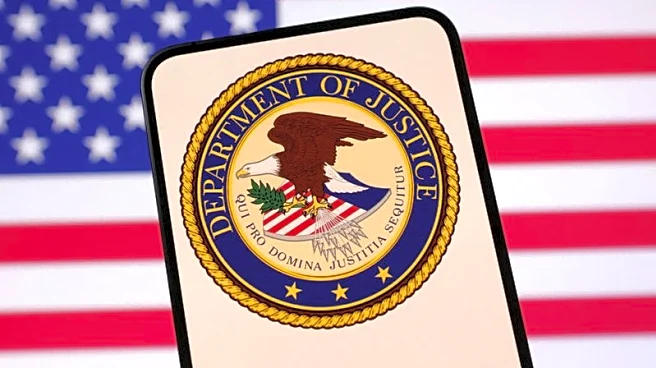What's Happening?
Wendy Osefo, a cast member of 'The Real Housewives of Potomac,' and her husband Eddie Osefo have been indicted on 16 charges, including seven felonies, related to insurance fraud. The indictment was filed
on October 9, 2025, in Carroll County, Maryland. This legal development has already caused Bravo to delay the season premiere of the show by one week to October 14, 2025, to protect production and advertisers. The charges have sparked a significant reaction among fans and industry insiders, with some calling for the suspension of the Osefos from the show, while others advocate for the presumption of innocence until proven guilty.
Why It's Important?
The indictment of Wendy Osefo is significant as it disrupts the business model of reality TV, which relies heavily on drama and consistent advertising windows. The legal proceedings could lead to a reevaluation of contracts and promotional strategies within the industry. Networks and producers face the challenge of deciding whether to edit around the implicated cast members, which could set a precedent for handling similar situations in the future. The case also raises questions about the impact of legal scandals on viewer trust and streaming engagement, potentially affecting advertising revenue and the show's ratings.
What's Next?
As the legal process unfolds, networks and producers will need to monitor viewer reactions and ratings closely. Advertisers may push for recasting or shelving episodes to protect their brand safety. The outcome of the case could influence future casting decisions and contractual terms in reality TV. Additionally, the industry will be watching for any shifts in social sentiment and engagement metrics, which could have financial implications for the show and its stakeholders.
Beyond the Headlines
This case highlights the increasing legal scrutiny faced by reality TV stars and the potential reputational risks for networks. It underscores the need for reality TV producers to balance storytelling with legal and ethical considerations. The situation also reflects broader societal debates about the accountability of public figures and the role of media in shaping public perceptions.











